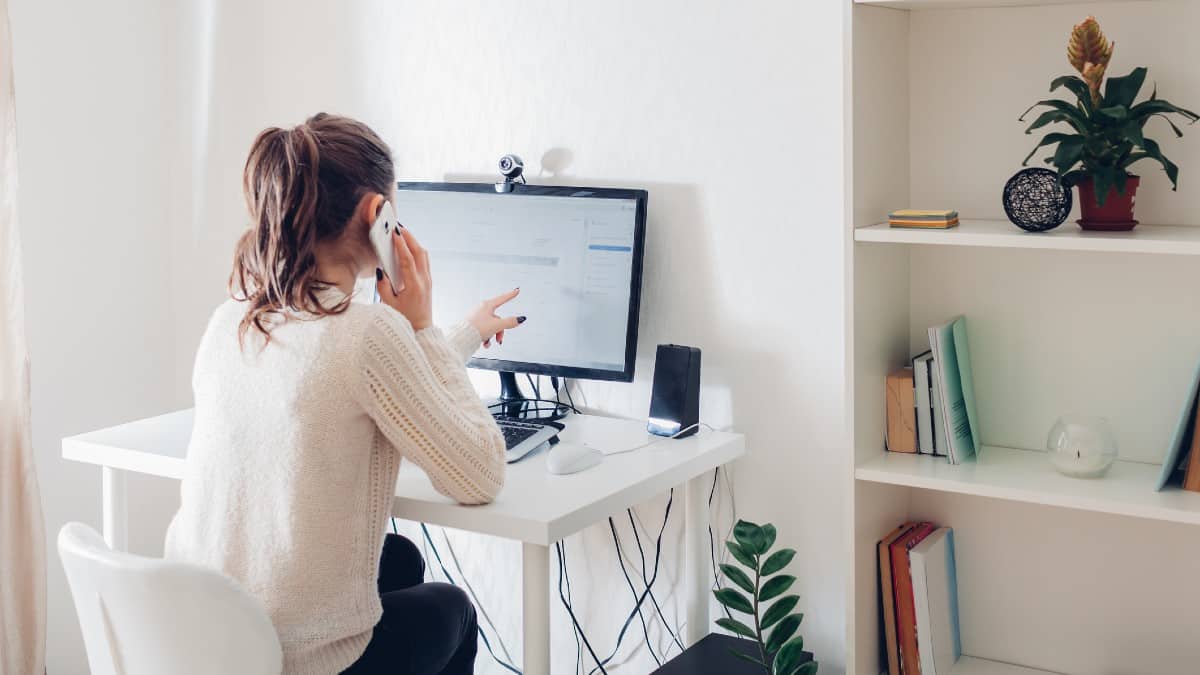Working from home offers a great opportunity to save money. But how do you get started, and where can you make the most savings? Here’s the lowdown on what you should know.
Why it’s hard to save money working from home
Sure, some people might find it easy saving money working from home. However, it can actually be pretty difficult, especially during stressful times like Covid-19. Let’s break down the two main reasons why.
- If you need to self-isolate, you can’t leave the house. So, you might be tempted to stockpile or buy things you don’t need “just in case”.
- There really is such a thing as “retail therapy”, according to experts. Shopping can relieve anxiety and sadness in the short term, so we keep buying things to feel good.
That said, it’s still possible to save money during a pandemic. Here’s how.
How to save money working from home
First thing’s first: you need a plan.
- Calculate how much you normally spend on work-related activities, including petrol and other travel costs.
- Draw up a budget. How much of this money can you afford to save now, and how much do you think you’ll need to spend? Remember, you’ll still need to buy things like food for lunches, so it’s not all money you can save.
Once you’ve set a budget, it’s time to start saving. To help you get going, here are seven easy ways to save money if you’re working from home.
1. Open a savings account
If you don’t have one already, consider opening a savings account. This will encourage you to actually save the money you would normally spend on lunches or train tickets rather than just leaving it sitting in your bank account. Remember, even if you can only put away £5 or £10 a week, this quickly adds up.
Top tip: look for a savings account with a high interest rate. With the right interest rate, you can actually earn money on your savings, which makes saving money an easy way to get started with investing.
2. Start an emergency fund
With rolling lockdowns causing so much uncertainty, it has never been more important to have some emergency cash behind you. Each week, put some money away for unexpected emergencies such as redundancy or essential home repairs.
For example, if you normally spend £40 a week on petrol but now you’re only spending £10, you could put £10 away as savings, and £20 into an emergency fund. It all depends on what works for you.
3. Unsubscribe from marketing emails
When you’re working from home, it’s easy to shop online because there’s no one tracking your time – or your browser history. And those marketing emails promising 30% off, or free delivery if you order something before midnight only make it more tempting!
The answer? Click the ‘unsubscribe’ button so you’re less likely to spend money on your lunch break.
4. Change the lightbulbs
Did you know that LEDs use roughly 90% less energy than traditional light bulbs? If you’re working from home with the lights on all day, a simple switch from old-style bulbs to LEDs can make a difference to your utility bill in the long term.
Alternatively, keep the lights off, throw the curtains open and stick to natural lighting until it’s dark.
5. Turn the heating down
Sure, it’s cold outside, but that doesn’t mean you need the heating up full blast. You can actually save up to £60 a year if you turn the thermostat down by just 1°C, so this is an easy way to reduce your energy bill.
6. Use less water
Save money working from home by reducing your water usage. The less water you use, the less you spend! Here are some simple money-saving hacks:
- Choose showers over baths.
- Cut back on how often you use the dishwasher.
- Don’t leave taps running when you’re brushing your teeth.
7. Claim working from home allowance
Another way to save money on utilities is by claiming the working from home allowance. Briefly, here’s how it works:
- You can claim tax relief on utilities like electricity and gas up to a flat rate of £6 per week.
- If you need to buy things like office supplies or furniture to do your job properly, you can claim tax back, too.
You can apply online through the UK government portal.
Takeaway
It’s a hugely stressful time for all of us. That said, it’s absolutely possible to save money working from home, even during the coronavirus pandemic. It just takes a little forward planning and willpower.
If it helps, set yourself some tangible goals. For example, why not aim to save enough money to invest a little in the future or pay off some credit card debt?
Whichever goal you set, it’s always a good idea to put some money aside for a rainy day, too – so don’t forget to build an emergency fund.







